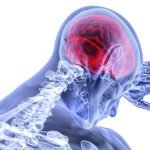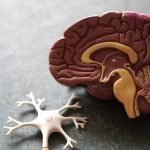Obsessive compulsive disorder linked to increased stroke risk later in life
Adults who have obsessive-compulsive disorder (OCD) were more than three times as likely to have an ischemic stroke later in life compared to adults...
This natural food supplement may help relieve anxiety
In a new study from the Weizmann Institute of Science, researchers found that a natural food supplement may help reduce anxiety.
The plant-derived substance, beta-sitosterol,...
Want to reduce your depression risk? Wake up 1 hour earlier
In a new study from University of Colorado Boulder, researchers found that waking up just one hour earlier could reduce a person's risk of...
Why is it so hard to withdraw from some depression drugs?
In a new study from the University of Illinois Chicago, researchers found why it is so difficult for people to withdraw from some antidepressant...
Digital depression intervention may improve symptoms
In a new study from Northwestern Medicine, researchers developed a mental health smartphone app to help improve depressive symptoms in patients with diabetes and...
Depression and anxiety linked to lower levels of heart health
In a new study from Emory University, researchers found younger adults with depression or anxiety may be more likely to have lower levels of...
This personality trait may signal big risk of schizophrenia
In a recent study published in Psychiatry Research, researchers found that people with inhibited temperament may have a higher risk of schizophrenia.
They suggest that inhibited...
This metal in the brain strongly linked to depression
Depressive disturbances are among the most frequent illnesses worldwide. The causes are complex and to date only partially understood. The trace element lithium appears...
Body inflammation may help predict depression severity
In a new study from Rice University, researchers found that bodily inflammation after the death of a spouse can predict future depression.
Prior research has...
Commonly used mental drugs may harm cognitive functions
In a new study from the University of California San Diego, researchers found that medications to reduce physical and mental health symptoms in schizophrenia...










